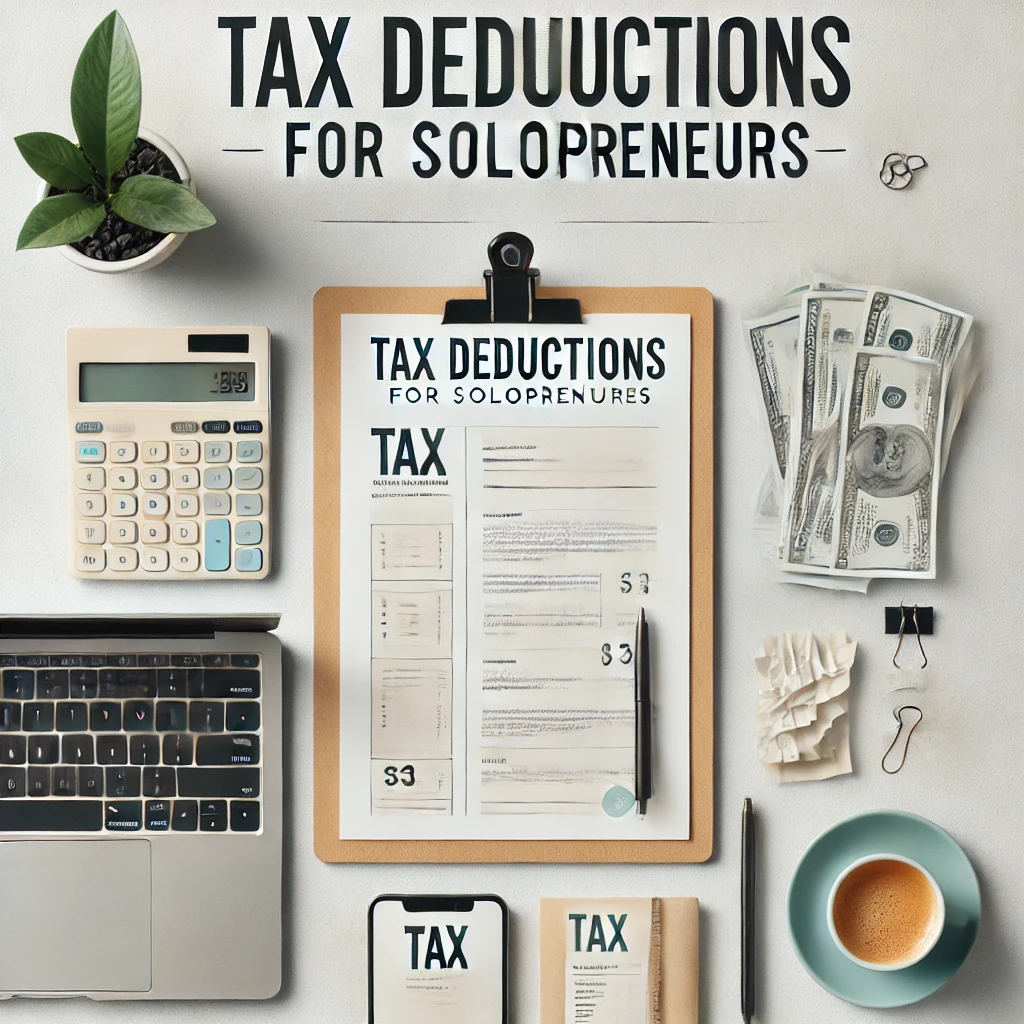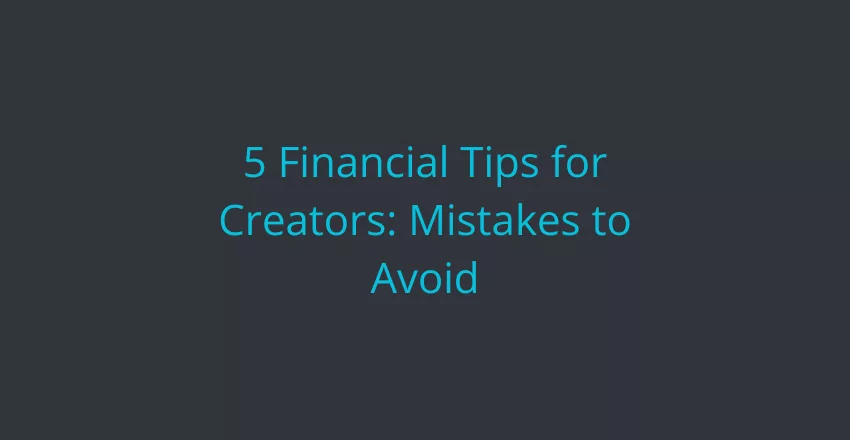Running your own business as a solopreneur or creator comes with a lot of perks, but one of the biggest challenges is navigating taxes. The good news? There are plenty of tax deductions that can help you save money—some you might already know, and others that are often overlooked. Here’s a comprehensive guide to maximizing your deductions and keeping more of your hard-earned money.
Common Tax Deductions for Solopreneurs and Creators
1. Home Office Deduction
One of the most valuable deductions for solopreneurs is the home office deduction. If you use part of your home exclusively for business, you can deduct a percentage of your rent or mortgage, utilities, and even property taxes based on the size of your workspace.
Pro Tip: Check the IRS guidelines to ensure your space qualifies. As long as you meet their criteria, this deduction can significantly reduce your tax bill.
2. Office Supplies and Equipment
Even if you work digitally, don’t overlook physical office supplies. Things like planners, filing systems, or even that ergonomic chair you purchased count as deductible expenses.
Personal Example: When I first learned I could deduct organizational tools, I was surprised—I had assumed that because I was a primarily digital business, only digital expenses counted!
3. Internet and Phone Bills
If you use your internet and phone for work, you can deduct a percentage of these expenses. Keep track of how much you’re using them for business versus personal purposes to calculate your deduction accurately.
4. Software and Subscriptions
Any tools you use to run your business—from Google Workspace to website hosting or design software like Adobe or Canva—can be deducted. For solopreneurs who rely on subscriptions, this can add up quickly.
My Workflow: I track subscriptions like hosting and Google Workspace directly in my bookkeeping system to make this deduction seamless.
5. Professional Development
Courses, workshops, or even books that help you grow your business or refine your skills are deductible. This is an often-overlooked deduction that can save creators a lot of money.
Overlooked Tax Deductions
1. Marketing and Advertising
From social media ads to email marketing tools like BirdSend, any expenses you incur to promote your business can be deducted.
2. Bank and Payment Processing Fees
If you use Stripe, PayPal, or other payment processors, don’t forget to deduct the fees they charge. It may seem small, but these costs add up over time.
3. Business Travel
Travel for conferences, client meetings, or networking events is deductible. This includes airfare, hotels, meals, and even rideshare costs while on business trips.
4. Health Insurance Premiums
If you’re self-employed and paying for your own health insurance, you may be eligible to deduct your premiums. Check with a tax professional to see if you qualify.
Lessons from My Solopreneur Tax Journey
My Biggest “Aha Moment”
I learned I could deduct a percentage of my home utilities based on the size of my home office. This was a game-changer and reduced my overall expenses significantly.
My Biggest Mistake
Early on, I saved bookkeeping for the last minute, which led to missed deductions. Now, I review my transactions monthly, keeping everything organized so I don’t leave money on the table.
Tools I Use
- Novo.co: My business bank account, which integrates bookkeeping software to simplify tracking.
- Google Drive: Where I store all my tax documents and receipts in folders organized by year.
- YNAB: To track cash flow and plan ahead for expenses.
- Google Sheets: For detailed bookkeeping before switching to software. If you’re looking for an easy and efficient way to keep track of your finances, check out my bookkeeping spreadsheet template designed specifically for solopreneurs and creators! It’s a one-time cost that saves you money compared to expensive subscriptions like QuickBooks.
Self-Employment Tax Hacks to Save You Time and Money
- Separate Business and Personal Finances Using a dedicated business bank account and debit card, like Novo.co, makes it much easier to track expenses and avoid IRS scrutiny.
- Review Expenses Monthly Don’t wait until tax season to go through your finances. Reviewing transactions monthly ensures you don’t miss anything.
- Organize Receipts and Documents Store receipts and invoices in one place, like Google Drive. Label folders by year and include subfolders for specific categories (e.g., subscriptions, equipment, travel).
- Take Advantage of Home Office Deductions Make sure your space qualifies, and then calculate the percentage of your home expenses you can deduct.
Make Your Tax Strategy Work for You
Navigating taxes as a solopreneur doesn’t have to be overwhelming. By staying organized, tracking your expenses throughout the year, and taking advantage of deductions like the home office, software subscriptions, and professional development, you can significantly reduce your tax burden.
The key is to start early, stay consistent, and never leave deductions on the table. Remember, every dollar saved is another dollar you can reinvest in growing your business.
CTA: Need a simple way to track your finances? Check out my bookkeeping spreadsheet template designed specifically for solopreneurs and creators!

